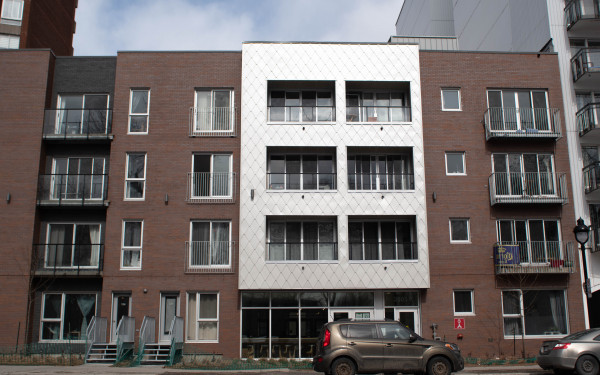Inaccessibility within co-op program leaves students in the dark
Students in Concordia’s co-op program voice concerns over administrative procedures
Concordia marketing graduate and content creator Soraya Dergham enjoyed her first two working terms of the school’s co-op program.
But all of that changed in spring 2022 during Dergham’s final work term. She received an email from the Institute for Co-operative Education advising her to apply for multiple positions in under 24 hours or risk being expelled from the program. Despite completing two co-op terms, that email put her under stress.
It was a mass email sent to students in the program, advising them to apply for multiple jobs in the co-op’s portal, Compass.
“That's the urgency that I got. And that's why I started applying to jobs because I was forced [from] that one email,” Dergham said. “They weren't necessarily jobs I wanted, I just did it to not lose my co-op status.”
Dergham spent her last term working in a job she did not want. The mass email resulted in distress and a distasteful work experience.
Around a week later, a phone meeting was set up between Dergham and a co-op coordinator to get her into a job she wanted. According to Dergham, the coordinator explained that, if she wasn’t willing to participate and work at the job she applied for, she would receive a “fail” on her student transcript.
“It doesn't feel fair. I went through the application process, I went through the interview process,” Dergham said. “I went through all these processes, and then they'd be like, ‘You're failing because you're choosing not to do overtime—you don't want to do it in the first place.’”
Students who find themselves in situations like Dergham’s can consult the Student Advocacy Office for support and guidance. The organization recently received an increase of several hundred cases related to the co-op program. These cases involve wrongful termination, lack of accommodations for students, schedule conflicts and more.
Students seeking help can explain their situation to the student advocates who will provide necessary documents, such as registration and work contracts. The student advocates can also conduct further research into the Academic Code of Conduct or other policies pertaining to the student’s request.
However, the centre’s interim lead advocate Sofia Lipari-Couture says there are limitations to the organization’s reach with the co-op program.
She explained that the Advocacy Centre focuses solely on internal procedures, institutions and offices, and, as such, student advocates can’t contact institutions outside of the university on students’ behalf.
“We're [only] trained to understand and explain policies,” Lipari-Couture said. “Anything that falls outside [of our mandate], like a job contract, would definitely fall outside of our jurisdiction because we're not lawyers, we're not trained to read contracts or explain the nature of a contract. So, in that sense, that is definitely an issue that we would have to refer back to the co-op.”
Fellow Advocacy Centre student advocate Erik Hristev added that the issues students have with the co-op institute are “always resolved within the co-op level.”
According to Concordia public affairs and deputy spokesperson Fiona Downey, the co-op administration processes student requests only after they are first seen by academic directors, co-op staff or faculty staff.
Downey explained that the university may use resources like the Office of Rights and Responsibilities and the Ombuds Office when dealing with student complaints.
“Concerns are addressed following the policies and procedures outlined in the university handbook and the terms and conditions of the institute’s functioning, posted on Compass for co-op students,” Downey said.
Regarding grades and student withdrawal, Downey said the co-op institute grades don’t impact a student’s GPA.
Dergham’s experience has hindered her view of the program.
“Co-op is a great concept. It's a great idea. It's good for students to get into the workforce as early as [they] can and have the experience, but I wouldn't recommend anyone to do co-op,” she said. “Make decisions that put students first and not employees first, because that's what it feels like right now.”






_600_375_90_s_c1.jpg)
